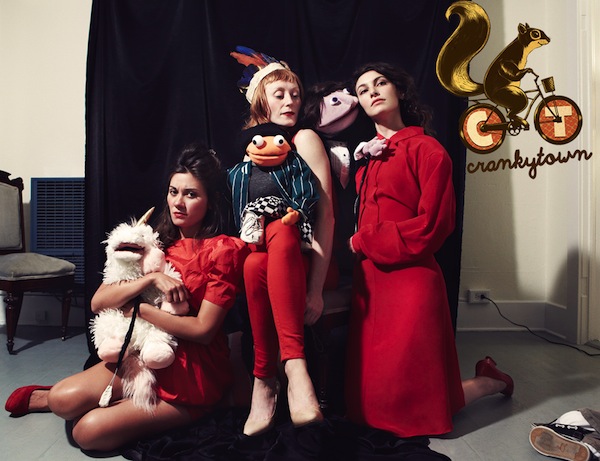
Earlier this year, we wrote about Crankytown’s unique period-themed website and its short film festival, Crankyfest.
Crankytown is an interactive site about periods that features videos, stories and poems, created by Canadian actresses Liane Balaban, Vanessa Matsui, and Jenna Wright. Crankytown partnered with Playback Digital Company of the Year, iThentic, to launch Crankyfest, a contest for videos about periods.
Crankytown announced Laura Maxwell’s short film, First, was the winner of Crankyfest.
[youtube_sc url=”http://www.youtube.com/watch?v=mtLccR4P4pE&feature=share&list=PLRYhF0arr_OYFL2f7y37MSY7z_Vs6ThLJ”]
“First seduced me with its distinctive animation style and tender message of love and compassion… a girl’s dream come true!” said juror Jane Grenier from Conde Nast/Teen Vogue.

Crankyfest has started a new cycle, and the deadline for submissions is March 3, 2014. See http://www.crankyfest.com/ for more details.
Winners will be chosen by celebrity jury Jay Baruchel (This Is The End), Denis Villeneuve (Oscar-nominated director of Incendies) Anna Silk (Lost Girl), Kevin Pollack (Usual Suspects) and Amanda Brugel (Seed).
Jay Baruchel Participates in Fundraising Campaign for Femme Kits
Crankytown released a video starring Jay Baruchel (Tropic Thunder, Million Dollar Baby) in honour of the UN’s International Day of the Girl Child (Oct. 11) to highlight the fact that their agenda for 2013 doesn’t address girls’ access to menstrual products in developing countries.
[youtube_sc url=”http://www.youtube.com/watch?v=5rgqjCHZmAo&feature=share&list=UU72gosZQ7n7arlwbbjvmv4g”]
Often girls are unable to attend school in developing countries because they do not have a means of managing their period. Addressing the issue of menstruation directly reduces rates of absenteeism among school girls. Unfortunately, this issue was not on the International Day of the Girl Child’s agenda for 2013.
So on Oct. 11, Crankytown and Your Box Club released an animated recounting of Baruchel’s early experiences with periods and puberty. Baruchel reflects on his family’s reaction to discussions of menstruation and his sisters growth into womanhood. The goal of the video, which was directed by Jenna Wright and produced by Ithentic.ca, is to help de-stigmatize conversations about periods and bring awareness to the issue of menstruation in developing countries.
“Menstruation is still a taboo topic. Our goal is to de-stigmatize periods because girls who are confident about their bodies are confident in their lives,” explains Crankytown co-founder Vanessa Matsui.
Crankytown and YourBoxClub.com partnered with Femme International, a Toronto-based NGO that provides girls in Kenya’s slums with a hygienic care kit, or Femme Kit, which contains a menstrual cup, an innovative and sustainable product that can be re-used for 10 years, giving young women the means to remain in school when they are menstruating.
According to Femme International’s home page, “Providing sanitary supplies to Kenyan schoolgirls reduces absenteeism by 75%, from 4.9 days to 1.2 days per month.”
Through this collaborative fundraiser, they were able to donate three Femme Kits.
For more information, to watch, compete, or donate, visit:
Crankytown – www.crankytown.com
Crankyfest – www.crankyfest.com
Your Box Club – www.yourboxclub.com
Femme International – www.femmeinternational.org



